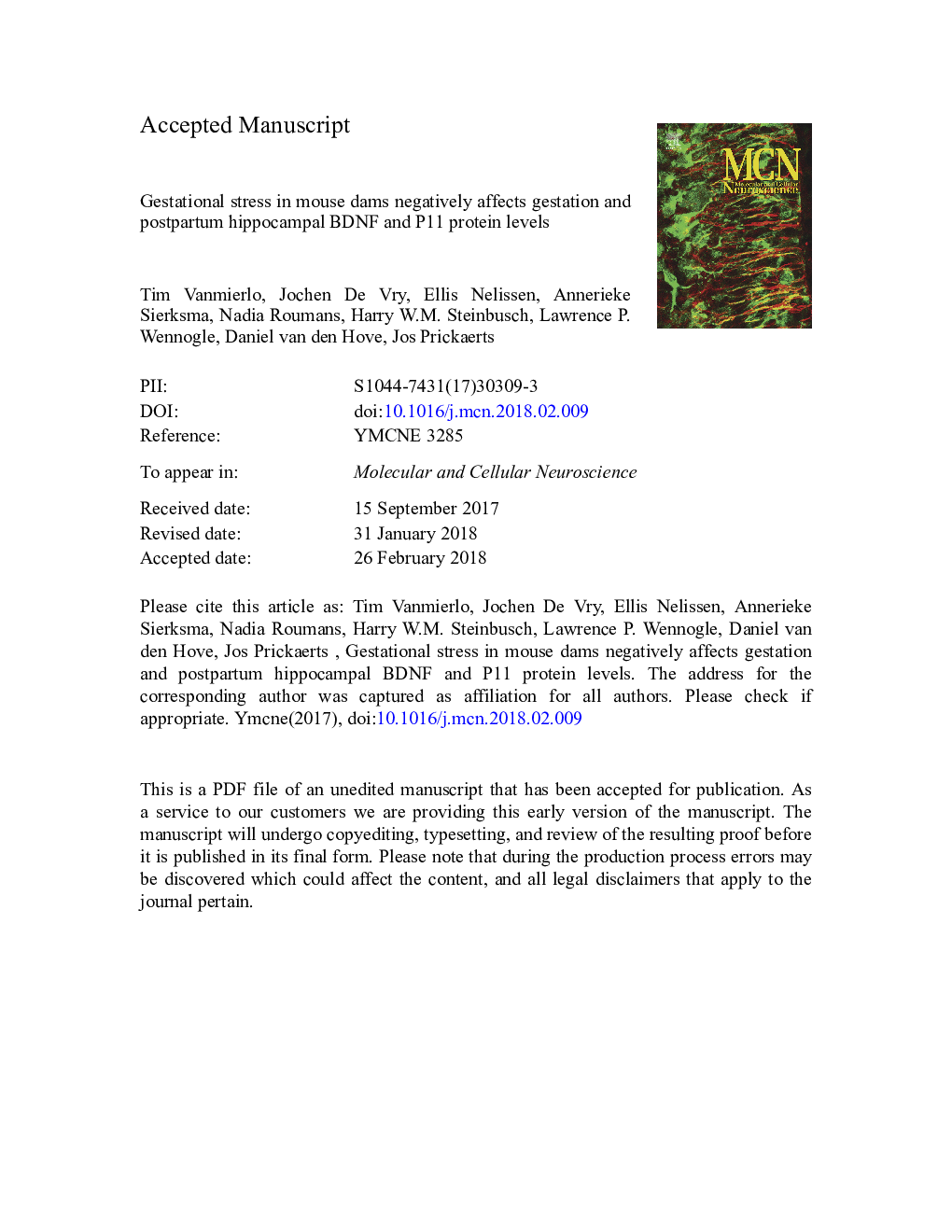| Article ID | Journal | Published Year | Pages | File Type |
|---|---|---|---|---|
| 8478390 | Molecular and Cellular Neuroscience | 2018 | 33 Pages |
Abstract
Stress during pregnancy increases the risk to develop psychological disorders such as depression during pregnancy or in the postpartum period. According to the neurotrophin hypothesis of depression, the pathophysiology of depression is caused by reduced neurotrophic activity in the brain. However, most studies only focus on the molecular changes happening to the offspring upon gestational stress. To gain insight into the potential molecular changes happening in the stressed dams, C57Bl6/J mice were stressed during their first week of gestation. At 28â¯days postpartum, the hippocampus and nucleus accumbens core of the dams, two brain regions heavily implicated in depression, were evaluated using immunohistochemistry to detect changes in the neurotrophin system. Gestational stress decreased the weight of the dams, increased the chance for spontaneous abortion and increased the weight of offspring. Litter size, survival rates and sex distribution were not altered as a consequence of gestational stress. Hippocampal brain-derived neurotrophic factor (BDNF) decreased following exposure to stress during pregnancy. Hippocampal protein levels of p75NTR, a low-affinity receptor for BDNF which can induce apoptosis, were increased following exposure to stress. Protein levels of p11, of which the expression is regulated by BDNF, were decreased in the hippocampus. No changes were found for TrkB immunostaining or apoptosis. Taken together, this shows that stress during pregnancy negatively affects the neurotrophin system in the hippocampus of the dams, thereby reducing hippocampal plasticity. These data confirm that gestational stress has a negative impact on pregnancy.
Keywords
VTAhorizontal limb of diagonal band of BrocaVDBTBS-TTrkBp75NTRHDBNACTBSBDNFGestational stressDepressioncornu ammonisterminal deoxynucleotidyl transferase dUTP nick-end labelingTris-buffered salineTUNELembryonic daypostnatal daymedial septumdentate gyrusBrain-derived neurotrophic factorventral tegmental areaNeurotrophinsNucleus accumbensPlasticityDiagonal band of Broca
Related Topics
Life Sciences
Biochemistry, Genetics and Molecular Biology
Cell Biology
Authors
Tim Vanmierlo, Jochen De Vry, Ellis Nelissen, Annerieke Sierksma, Nadia Roumans, Harry W.M. Steinbusch, Lawrence P. Wennogle, Daniel van den Hove, Jos Prickaerts,
